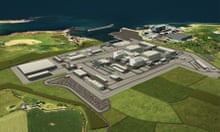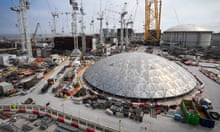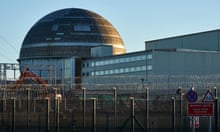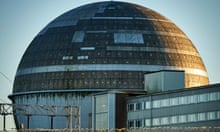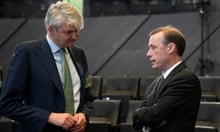EDF is planning to extend the life of four nuclear power stations in the UK and increase investment in its British nuclear fleet.
The French energy company, which manages Britain’s eight nuclear power stations, said it would make a decision on whether to extend the life of the four plants with advanced gas-cooled reactors (AGR) – Torness, Heysham 1 and 2, and Hartlepool – by the end of the year. This would require regulatory approval.
A spokesperson for the company said it would depend on plant inspections, adding the extensions would not be long but “incremental”.
Last March, EDF extended lifetimes at Hartlepool and Heysham 1 by a further two years to March 2026. Heysham 2 and Torness power stations are now due to stay operational until March 2028.
The French state-owned firm is also looking into running its Sizewell B plant on the Suffolk coast for 20 years longer than scheduled, until 2055. It is the UK’s only pressurised water reactor plant and has a capacity of 1.2 gigawatts (GW). A final decision will be taken next year.
EDF said it would invest a further £1.3bn in its whole UK nuclear fleet, which employs 5,000 people, between 2024 and 2026, taking the total invested to nearly £9bn since 2009. It plans to hire more than 1,000 people at its UK nuclear operations this year.
Mark Hartley, the managing director of EDF’s nuclear operations business, said: “Looking ahead, our aim is to maintain the output of the four AGR stations for as long as possible and extend Sizewell B by a further 20 years out to 2055.”
EDF Energy, its UK arm, operates Britain’s five nuclear power stations that generate electricity. A further three are defuelling (Hunterston B, Hinkley Point B and Dungeness B), the first stage of decommissioning.
The output of EDF’s UK nuclear fleet was 37.3 terawatt hours (TWh) last year, 15% lower than the year before because of station closures and statutory outages. The company aims to maintain output at 2023 levels until at least 2026.
EDF will also build the Sizewell C nuclear power plant on the Suffolk coast. A legal challenge brought by a campaign group against the government’s decision to build the 3.2GW plant was rejected last summer.
after newsletter promotion
Tom Greatrex, the chief executive of the Nuclear Industry Association, said: “EDF’s … ambition to extend the four AGR stations further if possible, should be widely welcomed – as it will cut gas imports, cut carbon and relieve winter pressures on our shaky grid.
“While lifetime extensions will help in the short term, they won’t address the medium and long-term issues of a fleet getting close to retirement – what we now need is for the government to get Sizewell C to a final investment decision swiftly, and set out a plan for a new fleet of stations.”
France’s energy minister said last week that the country needs more than the six new nuclear power stations that it has planned and may need to build 14 new plants in total. They will be built and operated by EDF.

